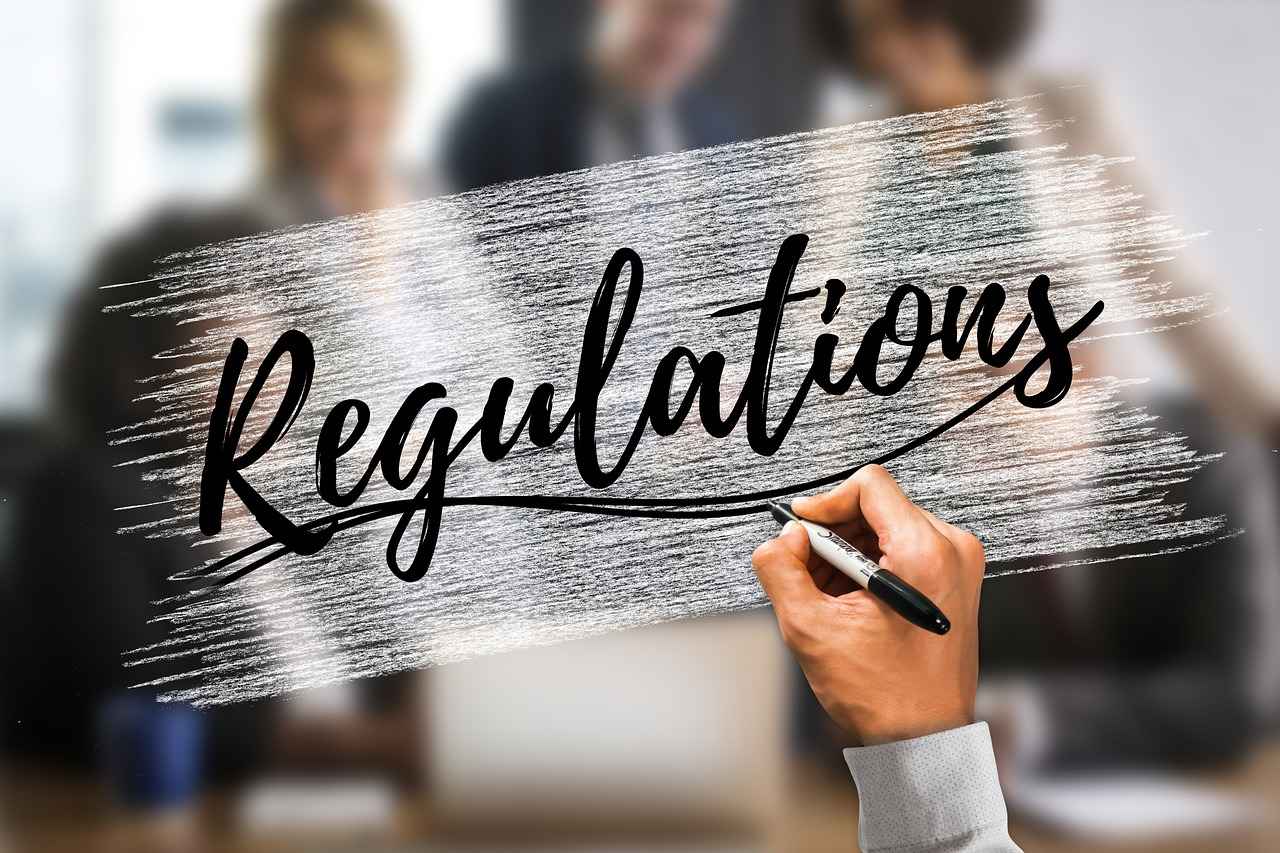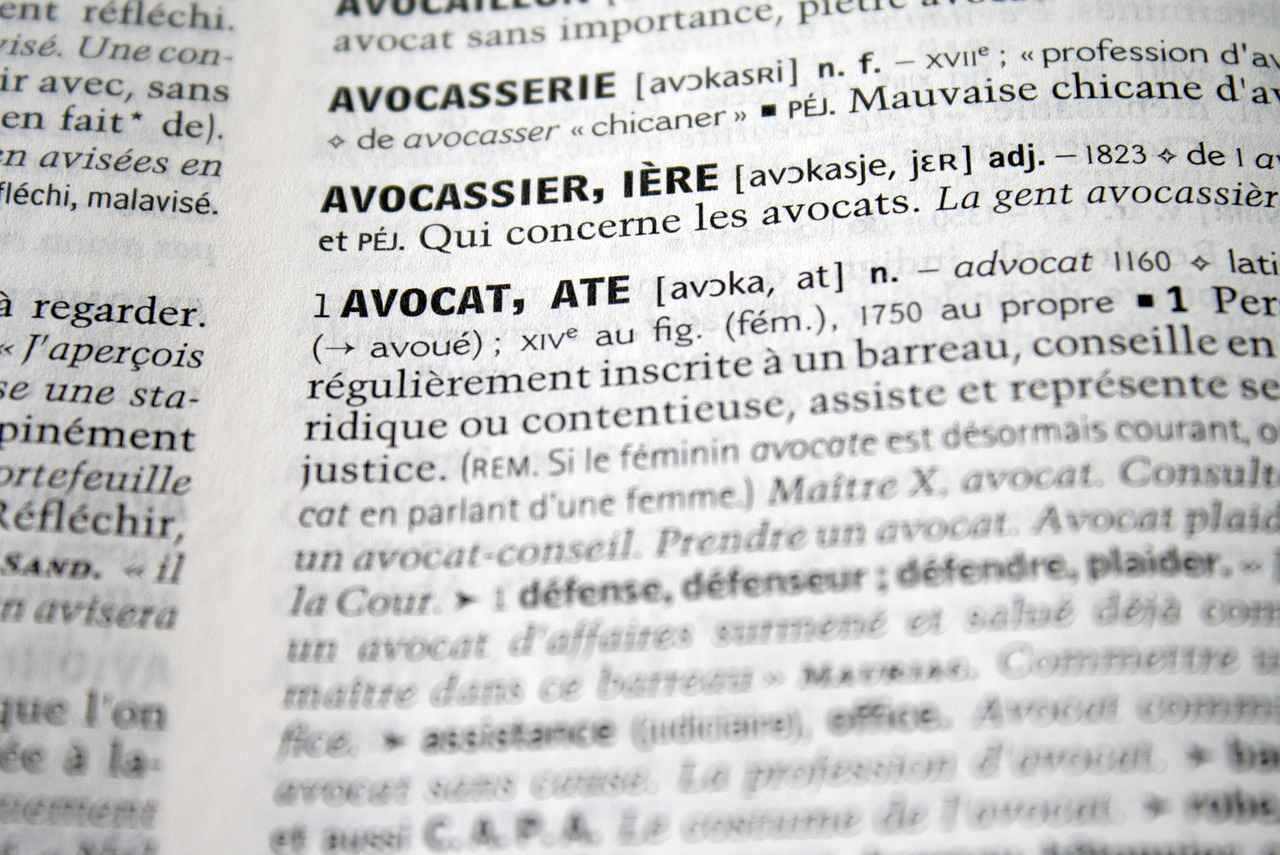In this article, we will explore the most common types of legal cases in the U.S. and provide expert guidance on finding qualified attorneys in Greensboro, NC. The legal landscape is vast and complex, and understanding the various types of cases can help individuals navigate their legal needs effectively. Whether you are dealing with personal injury, family law, or criminal defense, knowing how to find the right attorney is crucial for achieving the best possible outcome.
Understanding Personal Injury Cases
Personal injury cases are prevalent and can arise from various incidents, such as car accidents, slips and falls, and workplace injuries. To find a qualified attorney for these cases, consider the following:
- Look for attorneys who specialize in personal injury law and have a proven track record of successful settlements or verdicts.
- Check their online reviews and testimonials to gauge their reputation.
- Schedule consultations to discuss your case and evaluate their communication style and understanding of your needs.
Medical Malpractice: Navigating Complex Claims
Medical malpractice cases require specialized knowledge of healthcare law. To find an attorney who can effectively advocate for your rights, focus on the following:
- Seek out attorneys with experience in medical malpractice specifically, as they will understand the complexities of these cases.
- Verify their credentials and any past successes in similar cases.
- Ask about their approach to handling medical records and expert witnesses, as these are critical components of a malpractice claim.
Breach of Contract: Finding a Skilled Litigator
Breach of contract cases can involve significant financial stakes. To find the right attorney:
- Look for someone with expertise in contract law and a history of handling similar disputes.
- Evaluate their negotiation skills, as many contract disputes are resolved outside of court.
- Check for any disciplinary actions or complaints against them to ensure they are in good standing.
Property Disputes: Legal Guidance for Homeowners
Property disputes can be emotionally charged and legally complex. When searching for an attorney, consider:
- Attorneys with experience in real estate law and property disputes.
- Their ability to mediate conflicts and reach amicable solutions.
- Reviews from previous clients regarding their effectiveness and approachability.
Landlord-Tenant Disputes: Protecting Your Rights
Landlord-tenant disputes are common in urban areas. To find an attorney specializing in housing law:
- Look for attorneys with extensive knowledge of local tenant rights and landlord responsibilities.
- Assess their experience in handling eviction cases or lease disputes.
- Ask about their familiarity with local housing regulations and laws.
Defamation: Libel and Slander Cases Explained
Defamation cases can be challenging to navigate. Finding the right attorney involves:
- Seeking attorneys with a strong background in media law and defamation cases.
- Reviewing their past cases to understand their success rate in similar claims.
- Checking for their familiarity with both libel and slander laws in your jurisdiction.
Employment Disputes: Advocating for Workers’ Rights
Employment disputes can arise from various issues, including wrongful termination and discrimination. To find a skilled employment attorney:
- Look for attorneys who specialize in employment law and have experience with cases similar to yours.
- Check their success rates in settling or winning employment-related cases.
- Ask about their approach to client communication and support throughout the process.
Product Liability: Holding Manufacturers Accountable
Product liability cases involve injury caused by defective products. To enhance your chances of a successful claim:
- Find attorneys with experience in product liability and consumer protection laws.
- Evaluate their ability to handle complex litigation involving multiple parties.
- Research their past outcomes in similar cases to assess their effectiveness.
Wrongful Death: Seeking Justice for Loved Ones
Wrongful death claims are emotionally charged and legally complex. When choosing an attorney:
- Look for attorneys who demonstrate compassion and sensitivity towards your situation.
- Assess their experience in handling wrongful death cases and their understanding of the legal process.
- Check their past case results to gauge their success in securing compensation for clients.
Class Action Lawsuits: Understanding Collective Claims
Class action lawsuits allow individuals to band together against larger entities. To find an attorney experienced in class actions:
- Seek attorneys with a strong background in class action litigation and consumer rights.
- Evaluate their history of successful class action settlements or verdicts.
- Check their familiarity with the specific issues at stake in your case.
Criminal Defense: Protecting Your Freedom
Criminal cases encompass a wide range of offenses. Finding a skilled criminal defense attorney is crucial:
- Look for attorneys with experience in the specific type of crime you are accused of.
- Assess their courtroom experience and success rates in similar cases.
- Check for any disciplinary actions or complaints against them.
Family Law: Navigating Divorce and Custody Issues
Family law cases, including divorce and child custody, require sensitive handling. To find the right attorney:
- Seek attorneys who specialize in family law and have a strong understanding of state laws.
- Evaluate their approach to mediation and negotiation, as many family law issues can be settled amicably.
- Check their reputation and reviews from former clients.
Bankruptcy: Finding Relief from Debt
Bankruptcy can be a complex process. To find an attorney specializing in bankruptcy law:
- Look for attorneys with a strong understanding of bankruptcy procedures and laws.
- Evaluate their experience in helping clients navigate the bankruptcy process successfully.
- Check for their ability to provide personalized advice based on your financial situation.

Understanding Personal Injury Cases
Personal injury cases are among the most common legal claims in the United States. These cases arise when individuals suffer harm due to the negligence or wrongful actions of another party. Such incidents can include car accidents, slip and fall incidents, medical malpractice, and more. The complexity of these cases often necessitates the expertise of a qualified attorney who specializes in personal injury law.
Finding a qualified personal injury attorney is critical for ensuring a successful legal outcome. Here are some proven methods to help you identify the right legal professional for your case:
- Research Local Attorneys: Start by looking for attorneys who specialize in personal injury law within your area. Websites like Avvo and FindLaw provide directories of attorneys along with reviews and ratings from previous clients.
- Check Credentials: Look for attorneys with significant experience in personal injury cases. Verify their credentials, including their education and any special certifications, such as board certification in personal injury law.
- Schedule Consultations: Many attorneys offer free initial consultations. Use this opportunity to discuss your case and gauge their expertise and approach. Pay attention to how they communicate and whether they listen to your concerns.
- Evaluate Track Record: Inquire about the attorney’s success rate in handling cases similar to yours. A strong track record of favorable settlements or verdicts can be a good indicator of their ability to advocate effectively.
- Assess Communication Skills: Effective communication is essential in legal matters. Choose an attorney who is responsive and can explain complex legal concepts in a way that you can understand.
- Avoid Red Flags: Be cautious of attorneys who make unrealistic promises about the outcome of your case or who pressure you into signing agreements without giving you adequate time to consider your options.
In personal injury cases, the attorney’s fee structure is also important. Many personal injury attorneys work on a contingency fee basis, meaning they only get paid if you win your case. This arrangement can alleviate financial pressure during a challenging time.
Ultimately, the right attorney can make a significant difference in the outcome of your personal injury claim. By following the steps outlined above, you can increase your chances of finding a qualified attorney who will advocate for your rights and help you navigate the complexities of your case.

Medical Malpractice: Navigating Complex Claims
Medical malpractice cases are among the most intricate and challenging types of legal claims in the United States. These cases arise when a healthcare professional fails to provide the standard of care expected, resulting in harm to a patient. Navigating these claims requires a deep understanding of both medical and legal principles, making it essential to find an attorney who specializes in this area.
When seeking legal representation for a medical malpractice case, consider the following factors:
- Specialization: Look for attorneys who specifically focus on medical malpractice law. Their expertise in healthcare regulations and medical procedures will be invaluable in building a strong case.
- Experience: An attorney with a proven track record in handling medical malpractice cases will understand the nuances involved, including the complexities of proving negligence and causation.
- Reputation: Research potential attorneys through online reviews, testimonials, and legal directories. A strong reputation among peers and previous clients can be a good indicator of the attorney’s capabilities.
- Initial Consultation: Many attorneys offer free consultations. Use this opportunity to assess their knowledge, communication skills, and overall approach to your case.
- Resources: Medical malpractice cases often require expert witnesses, such as medical professionals who can testify on your behalf. Ensure the attorney has the necessary resources to access and engage these experts.
In addition to these factors, it is crucial to be aware of the red flags when selecting a medical malpractice attorney:
- Overpromising Results: Be cautious of attorneys who guarantee specific outcomes. Legal cases, especially medical malpractice, are inherently unpredictable.
- Lack of Communication: An attorney who is not responsive or fails to keep you updated on your case may not prioritize your interests.
- High Pressure Tactics: Avoid attorneys who push you to make quick decisions without allowing you to fully understand your options.
Ultimately, finding the right medical malpractice attorney involves thorough research and careful consideration. The stakes are high, and securing competent legal representation can significantly influence the outcome of your case. By focusing on specialization, experience, and reputation, you can enhance your chances of receiving the justice and compensation you deserve.

Breach of Contract: Finding a Skilled Litigator
Breach of contract cases can involve significant financial stakes, often impacting both individuals and businesses alike. When parties enter into a contract, they create a legally binding agreement that outlines their rights and obligations. If one party fails to fulfill their end of the bargain, it can lead to serious consequences, including financial losses and damaged relationships. Thus, it is essential to engage a qualified attorney who specializes in contract law to navigate these complex situations effectively.
To find the right litigator for your breach of contract case, consider the following steps:
- Assess Experience: Look for attorneys who have a proven track record in handling breach of contract cases. Experience in similar cases can significantly influence the outcome of your situation.
- Check Credentials: Verify the attorney’s educational background, bar admissions, and any relevant certifications in contract law. Membership in professional organizations, such as the American Bar Association, can also be a good indicator of credibility.
- Read Reviews and Testimonials: Online reviews from previous clients can provide insights into the attorney’s reputation and effectiveness. Platforms like Avvo and Martindale-Hubbell are excellent resources for checking ratings and reviews.
- Initial Consultation: Schedule consultations with potential attorneys to discuss your case. This meeting allows you to assess their communication skills, understanding of your situation, and overall approach to handling your case.
- Discuss Fees: Understanding the fee structure is crucial. Some attorneys charge hourly rates, while others may work on a contingency fee basis. Ensure you have a clear understanding of how you will be billed and any additional costs that may arise during the legal process.
In addition to these steps, be aware of red flags that may indicate an attorney is not the right fit for you:
- Lack of Communication: If an attorney is unresponsive or fails to provide clear answers during your initial consultation, it may indicate future communication issues.
- Pressure Tactics: Be cautious if an attorney tries to pressure you into making quick decisions or signing agreements without fully understanding the implications.
- Unrealistic Promises: Any attorney claiming guaranteed results should raise concerns. Legal matters, especially breach of contract cases, can be unpredictable.
In summary, finding a skilled litigator for breach of contract cases requires thorough research and careful consideration. Engaging an attorney with the right experience and credentials can make a substantial difference in the outcome of your case. By following the outlined steps and being mindful of potential red flags, you can ensure that you make an informed decision when selecting legal representation.

Property Disputes: Legal Guidance for Homeowners
Property disputes can be emotionally charged and legally complex. Whether you are facing issues related to ownership, boundaries, or property rights, navigating these challenges can be daunting. It is essential to secure a knowledgeable attorney who specializes in property law to help you resolve these disputes effectively.
In the realm of property law, disputes can arise from various situations, including disagreements over land boundaries, easements, and even disputes among co-owners. Understanding your rights and responsibilities as a property owner is crucial. A skilled attorney can provide the legal insight necessary to protect your interests and guide you through the process.
When seeking an attorney for property disputes, consider the following key factors:
- Experience: Look for an attorney with a proven track record in property law. They should have experience handling cases similar to yours, whether it involves residential or commercial properties.
- Specialization: Property law is a niche area. An attorney who specializes in real estate law will be more equipped to handle the intricacies of your case.
- Local Knowledge: Laws and regulations can vary significantly by location. An attorney familiar with the local laws in your area, such as Greensboro, NC, will be better prepared to navigate your case.
- Client Reviews: Research online reviews and testimonials from previous clients. This can provide insight into the attorney’s reputation and effectiveness.
- Consultation: Many attorneys offer a free initial consultation. Use this opportunity to assess their communication style, approach to your case, and overall compatibility.
Additionally, be aware of potential red flags when hiring an attorney for property disputes:
- Lack of Transparency: If an attorney is unwilling to discuss fees and potential costs upfront, it may indicate a lack of professionalism.
- Pressure Tactics: Be cautious of attorneys who pressure you to make quick decisions or sign contracts without fully understanding the implications.
- Poor Communication: An attorney should be responsive and communicative. If they are difficult to reach or do not provide clear answers, consider looking for someone else.
In conclusion, property disputes can be complex and stressful, but with the right legal guidance, you can navigate these challenges effectively. By taking the time to find a qualified attorney, you can ensure that your rights are protected and that you receive the best possible outcome in your case.

Landlord-Tenant Disputes: Protecting Your Rights
Landlord-tenant disputes are a frequent occurrence in urban areas, often arising from misunderstandings, unmet obligations, or differing expectations regarding rental agreements. These conflicts can lead to significant stress and confusion for both parties involved. Therefore, understanding the legal landscape is essential for tenants and landlords alike. This knowledge not only empowers individuals to protect their rights but also aids in finding a qualified attorney specializing in housing law.
In urban centers like New York City, Los Angeles, and Chicago, the rental market is highly competitive, making it crucial for tenants to be aware of their rights under local housing laws. For example, tenants have the right to a safe and habitable living environment, and landlords are obligated to maintain their properties accordingly. If you encounter issues such as unresolved repairs or eviction threats, consulting with a knowledgeable attorney can provide clarity and direction.
When searching for a legal professional, consider the following strategies:
- Research Local Attorneys: Utilize online legal directories such as Avvo, FindLaw, or the American Bar Association to find attorneys specializing in landlord-tenant law in your area.
- Check Credentials: Look for attorneys with a proven track record in housing law, including certifications or memberships in relevant legal organizations.
- Read Reviews: Client testimonials can provide insights into an attorney’s effectiveness and communication style. Look for patterns in feedback regarding their negotiation skills and case outcomes.
- Schedule Consultations: Many attorneys offer free initial consultations. Use this opportunity to discuss your case and gauge their understanding of landlord-tenant issues.
- Avoid Red Flags: Be cautious of attorneys who promise guaranteed outcomes or who pressure you to sign contracts without thoroughly reviewing them.
Additionally, understanding the common types of disputes can help you articulate your situation more effectively when consulting with an attorney. Common issues include:
- Security Deposits: Disputes often arise over the return of security deposits. Familiarize yourself with your state’s laws regarding the timeframe and conditions for returning these funds.
- Lease Violations: Whether it’s unauthorized pets or subletting without permission, lease violations can lead to legal conflicts that require professional intervention.
- Evictions: If facing eviction, it’s crucial to understand the legal process involved. An attorney can help you navigate defenses against wrongful eviction claims.
- Repairs and Maintenance: Tenants have the right to request repairs, and landlords are obligated to respond. Disputes can arise when either party fails to fulfill their responsibilities.
In summary, landlord-tenant disputes are a common issue in urban settings, but with the right knowledge and resources, individuals can effectively protect their rights. Engaging a qualified attorney who specializes in housing law can make a significant difference in the outcome of your case. By following the outlined strategies and understanding your rights and obligations, you can navigate these disputes with greater confidence.

Defamation: Libel and Slander Cases Explained
Defamation cases can be particularly intricate, often involving nuanced legal principles related to free speech and personal reputation. In these cases, the burden of proof typically lies with the plaintiff, who must demonstrate that the defendant made a false statement that caused harm to their reputation. There are two main categories of defamation: libel, which refers to written statements, and slander, which pertains to spoken statements. Understanding these distinctions is crucial when pursuing or defending against a defamation claim.
When seeking an attorney to handle a defamation case, it’s essential to find someone with a strong background in media law or defamation litigation. An attorney experienced in this area will be familiar with the various defenses that can be raised against defamation claims, such as truth, opinion, and privilege. They will also understand the implications of public figures versus private individuals in defamation cases, as the standards for proving defamation can differ significantly based on the plaintiff’s status.
To find the right attorney for your defamation case, consider the following steps:
- Research and Referrals: Start by asking friends, family, or colleagues for recommendations. Additionally, online platforms like Avvo or FindLaw can provide valuable insights into attorneys’ backgrounds and client reviews.
- Check Credentials: Look for attorneys who specialize in media law or defamation. Verify their credentials, including their education, years of experience, and any relevant certifications.
- Interview Potential Attorneys: Schedule consultations with a few attorneys to discuss your case. Pay attention to their communication style, understanding of your situation, and proposed strategies. This will help you gauge their expertise and whether they are a good fit for your needs.
- Assess Their Track Record: Inquire about their past cases, particularly those similar to yours. A successful history in handling defamation cases can be a strong indicator of their capability.
- Understand Fees and Costs: Discuss the attorney’s fee structure upfront. Some may work on a contingency basis, while others might charge hourly fees. Ensure you are clear on what services are included in the fees.
Additionally, be cautious of red flags during your attorney search. Avoid attorneys who make unrealistic promises about the outcome of your case or those who seem more interested in signing you as a client than addressing your concerns. Trust your instincts; a good attorney should make you feel comfortable and confident in their abilities.
Defamation cases can be emotionally taxing, and having the right legal representation is crucial for navigating the complexities involved. An attorney who understands the intricacies of media law can make a significant difference in the outcome of your case, whether you are pursuing a claim or defending against one.

Employment Disputes: Advocating for Workers’ Rights
Employment disputes are a significant concern for many workers in the United States. These disputes can arise from a variety of issues, including wrongful termination, discrimination, harassment, and wage disputes. Understanding your rights as an employee is crucial, and having a skilled employment attorney can make a considerable difference in navigating these complex situations.
Understanding Employment Law
Employment law encompasses a wide range of regulations that protect workers from unfair treatment in the workplace. These laws can vary by state, making it essential for employees to be aware of their rights. For example, federal laws prohibit discrimination based on race, gender, age, and disability. However, state laws may provide additional protections. An experienced attorney can help you understand these nuances and ensure your rights are upheld.
Types of Employment Disputes
- Wrongful Termination: This occurs when an employee is fired for illegal reasons, such as retaliation for reporting discrimination or harassment.
- Discrimination: Employees may face discrimination based on gender, race, age, or disability, impacting hiring, promotions, and job security.
- Harassment: Workplace harassment can create a hostile environment, affecting an employee’s ability to perform their job.
- Wage Disputes: Issues related to unpaid wages, overtime, and misclassification can lead to significant financial stress for employees.
Finding the Right Employment Attorney
When seeking legal representation for employment disputes, consider the following steps:
- Research: Start by researching attorneys who specialize in employment law. Look for those with a strong track record in handling cases similar to yours.
- Check Credentials: Verify the attorney’s education, experience, and any relevant certifications. Membership in professional organizations, such as the National Employment Lawyers Association (NELA), can be a good sign.
- Read Reviews: Online reviews and testimonials can provide insights into an attorney’s reputation and effectiveness. Look for patterns in feedback to gauge their strengths and weaknesses.
- Consultation: Many attorneys offer free consultations. Use this opportunity to discuss your case and assess whether the attorney understands your concerns.
Questions to Ask During Consultations
During your initial meeting with a potential attorney, consider asking the following questions:
- What is your experience with cases like mine?
- What is your approach to handling employment disputes?
- What are your fees, and how are they structured?
- Can you provide references from past clients?
Red Flags to Avoid
While searching for an employment attorney, be mindful of red flags that may indicate a lack of professionalism or competence:
- Pressure Tactics: Be wary of attorneys who pressure you to sign agreements or make quick decisions.
- Lack of Communication: If an attorney is difficult to reach or does not respond promptly, it may signal future communication issues.
- Unclear Fee Structures: Avoid attorneys who cannot clearly explain their fees or who have hidden charges.
In summary, employment disputes can be challenging and emotionally taxing. However, with the right legal representation, you can navigate these issues effectively. By understanding your rights, researching potential attorneys, and asking the right questions, you can find a qualified advocate to help you achieve a favorable outcome.

Product Liability: Holding Manufacturers Accountable
Product liability cases are a critical aspect of consumer protection law, addressing injuries caused by defective products. These cases can arise from various issues, including design flaws, manufacturing defects, or inadequate warnings about potential dangers. When a consumer suffers harm due to a defective product, they may be entitled to compensation for their injuries, medical expenses, and other related damages.
To enhance your chances of a successful claim, it is essential to find a lawyer with extensive experience in product liability law. Here are some key factors to consider when searching for the right attorney:
- Specialization: Look for lawyers who specialize in personal injury and product liability cases. A specialized attorney will have a deeper understanding of the laws and regulations surrounding product safety.
- Experience: Seek out attorneys with a proven track record in handling product liability claims. Experienced lawyers will be familiar with the complexities of these cases and how to navigate them effectively.
- Reputation: Research the attorney’s reputation within the legal community. Online reviews, testimonials, and peer endorsements can provide valuable insights into their professionalism and effectiveness.
- Initial Consultation: Many attorneys offer free initial consultations. Use this opportunity to discuss your case and gauge the attorney’s knowledge and approach. Ask about their previous cases and outcomes to assess their suitability for your needs.
- Fee Structure: Understand the attorney’s fee structure before committing. Many product liability lawyers work on a contingency fee basis, meaning they only get paid if you win your case. This arrangement can alleviate financial pressure during the legal process.
When evaluating potential attorneys, be wary of red flags that may indicate a lack of competence or integrity. These can include:
- Unrealistic promises of quick settlements or guaranteed outcomes.
- A lack of transparency regarding fees and costs.
- Pressure to sign agreements without fully understanding the terms.
- A poor communication style or unresponsiveness to your inquiries.
In major metropolitan areas such as New York City, Los Angeles, and Chicago, there are numerous resources available to help you find qualified product liability attorneys. Online legal directories, bar association referrals, and local legal aid organizations can provide lists of reputable lawyers in your area.
Additionally, networking with friends, family, or colleagues who have had similar experiences can lead you to trustworthy attorneys. Personal recommendations often carry significant weight, as they come from individuals who have firsthand knowledge of the attorney’s capabilities.
In conclusion, navigating product liability cases can be challenging, but with the right legal representation, you can hold manufacturers accountable for their defective products. By focusing on specialization, experience, reputation, and clear communication, you can find an attorney who will advocate for your rights and help you secure the compensation you deserve.

Wrongful Death: Seeking Justice for Loved Ones
Wrongful death claims represent one of the most devastating types of legal cases, as they stem from the loss of a loved one due to another party’s negligence or wrongful actions. The emotional toll of such cases can be overwhelming, making it imperative to approach them with both compassion and legal expertise. In this section, we will delve deeper into the intricacies of wrongful death claims and provide guidance on how to find the right attorney to represent your interests.
The legal framework surrounding wrongful death varies from state to state, but generally, these claims arise when a person’s death is caused by the negligence or intentional act of another. Common scenarios include fatal car accidents, medical malpractice, workplace accidents, and criminal acts. Families affected by such tragedies often seek compensation for lost income, funeral expenses, and emotional suffering.
When searching for an attorney to handle wrongful death claims, it is essential to consider several factors:
- Experience: Look for an attorney who specializes in wrongful death cases. Their familiarity with the legal nuances can significantly impact the outcome of your case.
- Compassion: A lawyer who demonstrates empathy towards your situation can provide not only legal representation but also emotional support during this challenging time.
- Track Record: Investigate the attorney’s past case results. A history of successful settlements or verdicts in wrongful death cases can indicate their capability to handle your claim effectively.
- Communication: Choose an attorney who communicates clearly and regularly. You should feel comfortable discussing your case and have your questions answered promptly.
- Fees: Understanding the attorney’s fee structure is crucial. Many wrongful death attorneys work on a contingency fee basis, meaning they only get paid if you win your case. Ensure you are clear on any potential costs involved.
Additionally, consider utilizing online platforms and resources to find qualified attorneys. Websites like Avvo, FindLaw, and Martindale-Hubbell can provide valuable information, including attorney ratings and reviews. Local bar associations may also offer referral services to connect you with reputable lawyers in your area.
Finally, be mindful of red flags when selecting an attorney. Avoid lawyers who make unrealistic promises about the outcome of your case or those who pressure you into making hasty decisions. A reputable attorney will provide honest assessments and allow you the time to make informed choices.
In conclusion, wrongful death claims are not only legally complex but also deeply emotional. By choosing an attorney who is both experienced and compassionate, you can navigate the legal landscape more effectively while seeking justice for your loved one.

Class Action Lawsuits: Understanding Collective Claims
Class action lawsuits represent a powerful legal mechanism that enables individuals to unite against larger entities, such as corporations or government agencies. These lawsuits are particularly beneficial when numerous individuals suffer similar harm or injustice, allowing them to collectively seek redress in a single case rather than pursuing individual claims. This approach not only increases efficiency but also levels the playing field against more powerful defendants.
To effectively navigate the complexities of class action lawsuits, it is essential to engage an attorney who specializes in this area of law. Experienced class action attorneys possess the necessary skills to handle the intricate legal processes involved. They understand the nuances of class certification, which is a critical step where the court determines whether the case can proceed as a class action. This process requires proving that the claims of the class members share common legal or factual issues, making it essential to have a lawyer who can effectively present this argument.
Finding the right attorney for a class action lawsuit involves several important considerations:
- Experience: Look for an attorney with a proven track record in handling class action cases. Their experience can significantly impact the outcome of your case.
- Specialization: Class action lawsuits often involve specific areas of law, such as consumer rights, securities fraud, or employment discrimination. Ensure that your attorney has relevant expertise in the specific type of class action you are pursuing.
- Reputation: Research the attorney’s reputation within the legal community. Peer reviews, client testimonials, and successful case outcomes can provide insight into their capabilities.
- Resources: Class actions can be resource-intensive. A well-equipped law firm with access to financial and expert resources can enhance your chances of a successful outcome.
- Communication: Effective communication is key. Choose an attorney who is responsive and willing to explain the complexities of the case in understandable terms.
In addition to these factors, it is crucial to be aware of red flags when selecting a class action attorney:
- Lack of Transparency: If an attorney is unwilling to provide clear information about their fees, experience, or the potential risks associated with the case, consider this a warning sign.
- Pressure Tactics: Be cautious of attorneys who rush you into making decisions. A reputable attorney will allow you the time needed to understand your options.
- Limited Class Action Experience: Avoid attorneys who primarily focus on other types of law and have minimal experience in class actions.
In major metropolitan areas like New York City, Los Angeles, and Chicago, there are numerous resources available to help individuals find qualified class action attorneys. Online legal directories, bar association referrals, and legal aid organizations can be excellent starting points. Additionally, many law firms offer free consultations, allowing potential clients to assess their options without financial commitment.
Ultimately, class action lawsuits can serve as a powerful tool for achieving justice. By carefully selecting a qualified attorney, individuals can enhance their chances of successfully navigating the legal landscape and holding larger entities accountable for their actions.

Criminal Defense: Protecting Your Freedom
Criminal cases represent a significant aspect of the legal landscape, encompassing a wide array of offenses that can have serious consequences for individuals. From minor misdemeanors to severe felonies, the implications of a criminal charge can alter the course of a person’s life. As such, securing a skilled criminal defense attorney is essential to ensure that your rights are upheld and that you receive a fair trial.
When searching for a competent criminal defense lawyer, it is important to consider several factors. Firstly, look for an attorney who specializes in criminal law. This specialization ensures that they are well-versed in the intricacies of the legal system and possess the necessary experience to handle your specific case. You can start your search by utilizing legal directories such as Avvo, FindLaw, or Martindale-Hubbell, which provide detailed profiles of attorneys, including their areas of expertise, client reviews, and professional ratings.
Additionally, consider the attorney’s track record in handling cases similar to yours. For instance, if you are facing charges related to drug offenses, it is prudent to hire a lawyer who has successfully defended clients in similar situations. Ask potential attorneys about their success rates, and whether they have experience negotiating plea deals or taking cases to trial.
Another vital aspect is the attorney’s communication style. A good defense attorney should be approachable, willing to answer your questions, and capable of explaining complex legal concepts in a way that you can understand. During your initial consultation, pay attention to how they interact with you; this can be a good indicator of how they will handle your case moving forward.
Furthermore, consider the attorney’s fees and payment structure. Many criminal defense lawyers work on a retainer basis, while others may charge hourly rates. Make sure to discuss fees upfront and understand what services are included. Be cautious of attorneys who demand large sums of money without a clear outline of their services, as this may be a red flag.
Lastly, trust your instincts. If you feel uncomfortable or unsure about an attorney during your initial meetings, it may be best to continue your search. The relationship between a client and their attorney is crucial, particularly in criminal cases where trust and transparency are paramount.
In conclusion, finding the right criminal defense attorney requires careful consideration and research. By focusing on specialization, experience, communication, fees, and personal comfort, you can better navigate the complexities of the legal system and protect your freedom effectively.

Family Law: Navigating Divorce and Custody Issues
Family law encompasses a wide range of sensitive issues that can significantly impact individuals and families. Among the most common cases are divorce and child custody disputes. These matters require not only legal expertise but also a compassionate approach to navigate the emotional complexities involved.
When facing a divorce, individuals often experience a myriad of emotions, including anger, sadness, and confusion. An experienced family law attorney can provide invaluable support in understanding the legal implications of divorce, including asset division, alimony, and child support. It is essential to choose an attorney who specializes in family law and has a proven track record in handling similar cases. Look for credentials such as membership in the American Academy of Matrimonial Lawyers or local bar associations.
In child custody cases, the stakes can be incredibly high, as the outcome directly affects the lives of children. A knowledgeable attorney can advocate for your parental rights and help establish a custody arrangement that serves the best interests of the child. During initial consultations, ask potential attorneys about their approach to custody disputes and how they prioritize the child’s needs. This can provide insight into their philosophy and effectiveness.
Additionally, it is crucial to consider the attorney’s communication style. A good family law attorney should be able to explain complex legal jargon in a way that is easy to understand. They should also be responsive to your questions and concerns, as this level of engagement can make a significant difference in your overall experience.
When searching for a family law attorney in metropolitan areas like New York City or Los Angeles, utilize online platforms such as Avvo or FindLaw to read reviews and compare qualifications. These platforms often provide ratings based on client feedback, which can be invaluable when making your decision. However, be cautious of overly positive reviews that seem generic, as they may not accurately reflect the attorney’s capabilities.
Another effective method is to seek referrals from trusted friends or family members who have gone through similar legal challenges. Personal recommendations can lead you to attorneys who have demonstrated effectiveness and empathy in their practice. Moreover, consider scheduling consultations with multiple attorneys to get a feel for their approach and personality. This will also allow you to compare fees and payment structures, ensuring that you find an attorney who fits your budget.
Red flags to watch out for include attorneys who make unrealistic promises or guarantee outcomes, as legal cases can be unpredictable. Additionally, if an attorney is unwilling to provide references or discuss their previous cases, it may be a sign to look elsewhere. Trust your instincts; if something feels off during your interactions, it’s worth considering other options.
In summary, navigating family law cases such as divorce and child custody requires careful consideration and the right legal support. By focusing on qualifications, communication, and personal referrals, you can find a family law attorney who will advocate for your rights and help you through these challenging times.

Bankruptcy: Finding Relief from Debt
Bankruptcy can be a daunting and complex process for anyone facing overwhelming debt. It is essential to understand that bankruptcy is not merely a means of escaping financial obligations; it is a legal remedy designed to provide individuals and businesses with a fresh start. Navigating the legal requirements and understanding your options can be challenging, which is why seeking the assistance of a qualified attorney specializing in bankruptcy law is crucial.
When searching for a bankruptcy attorney, consider the following steps:
- Research Specialization: Ensure that the attorney you are considering specializes in bankruptcy law. This area of law is intricate and requires specific knowledge of both federal and state regulations.
- Check Credentials: Look for attorneys who are members of reputable organizations such as the American Bankruptcy Institute or state bar associations. These memberships often indicate a commitment to staying updated on the latest legal developments.
- Read Reviews: Online reviews and testimonials can provide insight into an attorney’s reputation and success rate. Websites like Avvo and Martindale-Hubbell can be valuable resources.
- Schedule Consultations: Most bankruptcy attorneys offer free initial consultations. Use this opportunity to discuss your situation and gauge the attorney’s expertise and approach.
- Evaluate Fees: Bankruptcy can be expensive, so it’s essential to understand the attorney’s fee structure upfront. Some attorneys may offer payment plans or work on a sliding scale based on your financial situation.
During your consultation, ask questions that will help you assess the attorney’s knowledge and compatibility with your needs. For instance, inquire about their experience with cases similar to yours and their approach to handling bankruptcy filings. A competent attorney should be able to explain the differences between Chapter 7 and Chapter 13 bankruptcy, including the implications of each type on your assets and future financial stability.
It’s also important to discuss the timeline of the bankruptcy process and what you can expect at each stage. A knowledgeable attorney will provide you with a clear outline of the steps involved, from filing the petition to attending the creditors’ meeting. This transparency helps alleviate anxiety and prepares you for what lies ahead.
Another critical factor is the attorney’s communication style. You want someone who is responsive and willing to answer your questions throughout the process. A good attorney will keep you informed about the progress of your case and be available to address any concerns that may arise.
In addition to these practical considerations, be cautious of red flags that may indicate a less-than-reputable attorney. These can include:
- High-Pressure Tactics: Be wary of attorneys who pressure you to make quick decisions or sign contracts without giving you adequate time to review.
- Lack of Transparency: If an attorney is unwilling to provide clear information about fees and services, consider looking elsewhere.
- Negative Reviews: Consistent negative feedback regarding an attorney’s professionalism or effectiveness should raise concerns about their capabilities.
Bankruptcy is a serious matter that can significantly impact your financial future. Choosing the right attorney can make a substantial difference in the outcome of your case. By conducting thorough research, asking the right questions, and being mindful of potential red flags, you can find a qualified bankruptcy attorney who will guide you through this challenging process.
Remember, the goal of filing for bankruptcy is to achieve financial relief and a fresh start. With the right legal support, you can navigate the complexities of bankruptcy and work towards rebuilding your financial future.
Frequently Asked Questions
- What should I look for in a personal injury attorney?
When searching for a personal injury attorney, consider their experience, track record, and client reviews. It’s also important to find someone who communicates well and understands your specific case.
- How do I know if I have a medical malpractice case?
To determine if you have a medical malpractice case, consult with a legal professional who specializes in this area. They can help assess whether the healthcare provider’s actions fell below the standard of care.
- What are the common types of breach of contract cases?
Breach of contract cases can include issues like non-payment, failure to deliver goods or services, or not adhering to terms agreed upon. A skilled litigator can help you navigate these complexities.
- Can I represent myself in a landlord-tenant dispute?
While you can represent yourself, having an attorney who understands housing law can significantly improve your chances of a favorable outcome. They can help you understand your rights and responsibilities.
- What is the process for filing a class action lawsuit?
The process involves gathering a group of individuals with similar claims, finding a qualified attorney, and filing a complaint in court. An experienced attorney can guide you through each step effectively.
- How can a family law attorney assist me during a divorce?
A family law attorney can provide emotional support, legal advice, and help negotiate settlements related to asset division, child custody, and support, ensuring your rights are protected.














